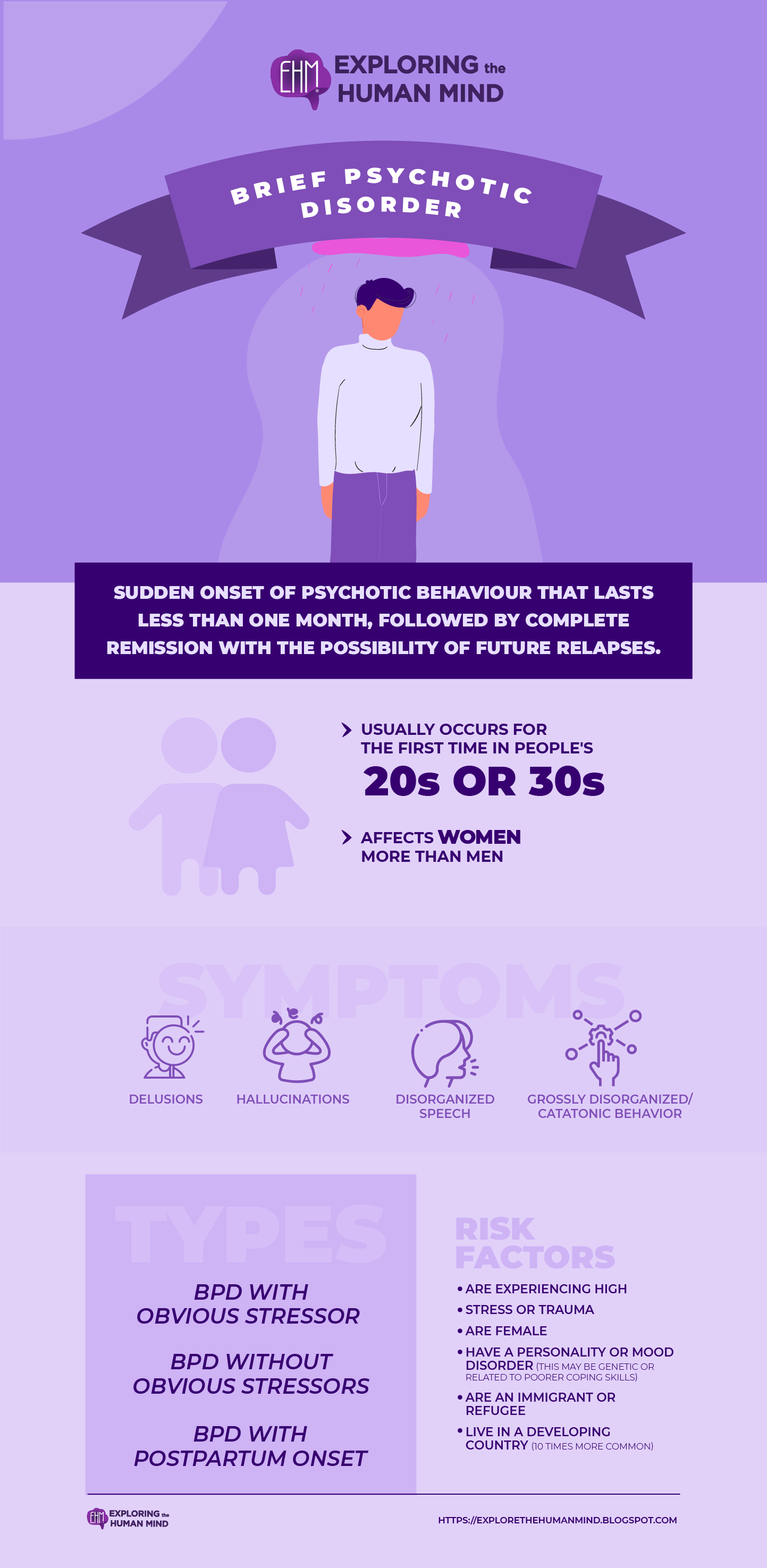Brief Psychotic Disorders
It usually occurs for the first time in people's 20s or 30s, and it affects women more than men. People with antisocial personality disorder or paranoid personality disorder are more likely to develop it.
Symptoms
Brief psychotic disorder is characterised by the onset of one or more of the following psychotic symptoms:
- Delusions
- Hallucinations
- Disorganized speech
- Grossly disorganized or catatonic behavior
Delusions, hallucinations, or disorganised speech must be present in at least one of these symptoms. The symptoms of BPD last from one day to one month, with a complete return to premorbid functioning following the disease course in response to antipsychotic medications.

vectors by Freepick; graphic design by Vadot
Classification
Brief psychotic disorders are classified into three types:
- Brief psychotic disorder with obvious stressor (also called brief reactive psychosis): This type occurs soon after a traumatic event or major stress, such as the death of a loved one, an accident, an assault, or a natural disaster. It is usually a reaction to a traumatic event.
- Brief psychotic disorder without obvious stressors: There is no obvious trauma or stress that triggers this type.
- Brief psychotic disorder with postpartum onset: This type only occurs in women, usually within four weeks of giving birth.
Risk factors
According to research, you are more likely to develop a brief psychotic disorder if you:
- Are experiencing high stress or trauma
- Are female
- Have a personality or mood disorder (this may be genetic or related to poorer coping skills)
- Are an immigrant or refugee
- Live in a developing country (10 times more common)
The following factors can cause brief psychotic disorder:
- Pregnancy or childbirth
- Death of a loved one
- Environmental disaster
- Recent immigration
- War
A brief psychotic disorder can also occur in the absence of a significant stressor. It is important to note, however, that it cannot be caused by medication, substance abuse, or a medical condition, as these are entirely different diagnoses.
Reference:
WebMD. (2003, February 9). What Is Brief Psychotic Disorder? WebMD; WebMD. https://www.webmd.com/schizophrenia/mental-health-brief-psychotic-disorder
Stephen, A., & Lui, F. (2022, December 22). Brief Psychotic Disorder. Nih.gov; StatPearls Publishing. https://www.ncbi.nlm.nih.gov/books/NBK539912/#:~:text=Brief%20psychotic%20disorder%20(BPD)%20according,the%20duration%20of%20the%20psychosis.
Pedersen, T. (2022, December 9). What Is Brief Psychotic Disorder? Healthline; Healthline Media. https://www.healthline.com/health/brief-psychotic-disorder#risk-factors






Comments
Post a Comment